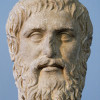“ What else do we mean by saying that one is rich, the other poor? And as regard or contempt is the natural consequence of those different situations in life, it is easily seen what additional light and evidence this throws on our preceding theory, with regard to all moral distinctions. ”
David Hume, An Enquiry Concerning the Principles of Morals (1751). copy citation
| Author | David Hume |
|---|---|
| Source | An Enquiry Concerning the Principles of Morals |
| Topic | contempt distinction |
| Date | 1751 |
| Language | English |
| Reference | |
| Note | |
| Weblink | http://www.gutenberg.org/files/4320/4320-h/4320-h.htm |
Context
“On the contrary, when a poor man appears, the disagreeable images of want, penury, hard labour, dirty furniture, coarse or ragged clothes, nauseous meat and distasteful liquor, immediately strike our fancy. What else do we mean by saying that one is rich, the other poor? And as regard or contempt is the natural consequence of those different situations in life, it is easily seen what additional light and evidence this throws on our preceding theory, with regard to all moral distinctions. [Footnote: There is something extraordinary, and seemingly unaccountable in the operation of our passions, when we consider the fortune and situation of others. Very often another's advancement and prosperity produces envy, which has a strong mixture of hatred, and arises chiefly from the comparison of ourselves with the person.”
source


